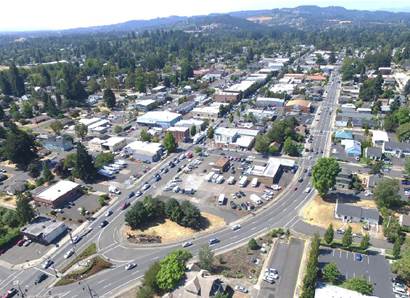Now Reading: Ford says restrictions at Mexico plants are ‘not sustainable’
-
01
Ford says restrictions at Mexico plants are ‘not sustainable’
Ford says restrictions at Mexico plants are ‘not sustainable’

Ford Motor on Thursday stated new staffing restrictions imposed on plants producing auto parts in the Mexican state of Chihuahua were “not sustainable,” the recent sign U.S. automakers are still reeling from coronavirus led lockdown in Mexico.
Mexico is a major part of a broader international supply chain important to U.S. automakers, many of which operate factories across the border in Mexico because of lower labor costs.
Chihuahua, where the state government has limited worker attendance to 50% in plants, is home to a Ford engine plant and many auto parts producers.
U.S. ambassador to Mexico Christopher Landau on Thursday said that the automaker may have to close some U.S. car plants as early as next week if they fail to get Mexico-produced engines.
Kumar Galhotra, president of Ford’s Americas and International Markets Group, said the automaker had “several suppliers” operating under restrictions enforced by Chihuahua state.
“With our U.S. plants running at 100%, that is not sustainable,” Galhotra said in an emailed statement according to Reuters.
He said that while the automaker is not expecting any impact on production next week, they are continuing to work with government officials on ways to safely and constructively restart remaining production.
Mexico’s federal government has allowed automakers, mining firms, and builders, to operate as their activities are deemed essential, though some states have implemented their own restrictions as the coronavirus cases continue to increase in Mexico.
About 289,174 people in Mexico have been confirmed as being infected with the coronavirus. The virus has killed 34,191 people in the country.
Landau said a senior Ford executive informed him on Wednesday night about the company’s concern auto over parts produced in Chihuahua state.
“They’re saying that they’re going to start closing down factories in the United States as of next week if they don’t get that rolling,” Landau said, in a discussion organized by the Atlantic Council.
Alejandra de la Vega, Chihuahua’s minister of innovation and economic development, stated she was in “constant contact” with Ford and spoke with a company executive Thursday morning, but did not describe what was discussed.
De la Vega said Chihuahua had created a traffic light system to permit different sectors to gradually resume from lockdowns, but added it was a “balancing act” to safeguard both public health and the economy.
In May, when Mexico indicated it would delay the restarting of the factories, Mexican officials stated their U.S. counterparts pushed for a speedy return, arguing that the U.S. factories on American soil could not operate without them.
Stay Informed With the Latest & Most Important News
Previous Post
Next Post
-
 01Polestar Boss Says It’s Time To Outrun BMW M And Mercedes-AMG
01Polestar Boss Says It’s Time To Outrun BMW M And Mercedes-AMG -
 02Spy Shots: 2027 Mitsubishi Pajero Spotted in Testing Ahead of Possible U.S. Return
02Spy Shots: 2027 Mitsubishi Pajero Spotted in Testing Ahead of Possible U.S. Return -
 032026 Toyota Hilux EV: A Powerful Truck with Silent Torque
032026 Toyota Hilux EV: A Powerful Truck with Silent Torque -
![2027 Mercedes-Benz S-Class Debuts with V8 Engine [Photo Gallery]](https://speedlux.com/wp-content/uploads/2026/01/2027-Mercedes-Benz-S-Class-33-155x125.jpg) 042027 Mercedes-Benz S-Class Debuts with V8 Engine [Photo Gallery]
042027 Mercedes-Benz S-Class Debuts with V8 Engine [Photo Gallery] -
 05Spy Photos: VW ID. Polo GTI Goes Electric with 223 HP and 280 Miles of Range
05Spy Photos: VW ID. Polo GTI Goes Electric with 223 HP and 280 Miles of Range -
 06Hyundai Palisade’s Breakout Year Shows How Quickly the Market Can Turn
06Hyundai Palisade’s Breakout Year Shows How Quickly the Market Can Turn -
 07The Controversial Ford Voodoo V8 That Was Killed Off Too Early
07The Controversial Ford Voodoo V8 That Was Killed Off Too Early



![2027 Mercedes-Benz S-Class Debuts with V8 Engine [Photo Gallery]](https://speedlux.com/wp-content/uploads/2026/01/2027-Mercedes-Benz-S-Class-33-700x394.jpg)










































